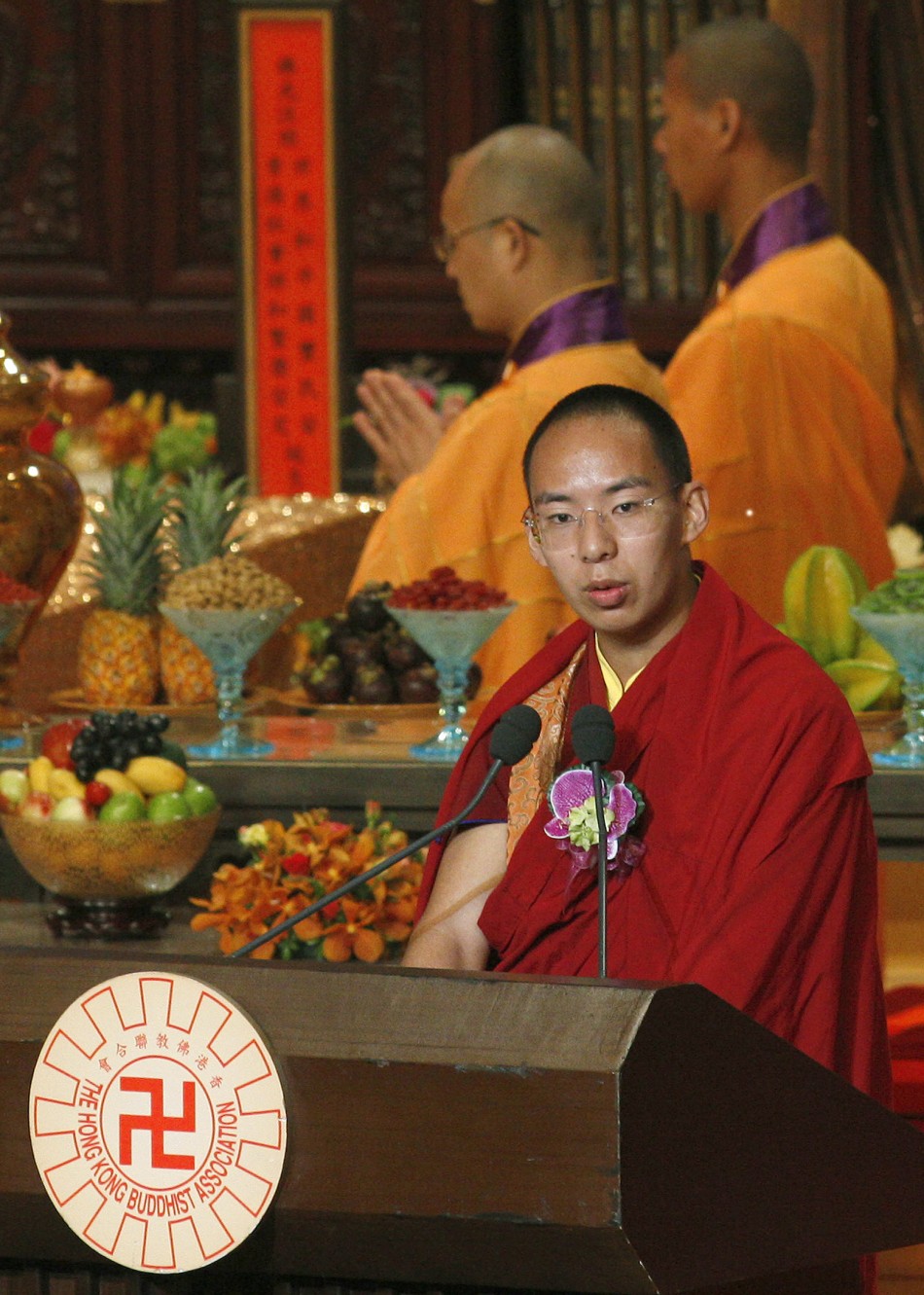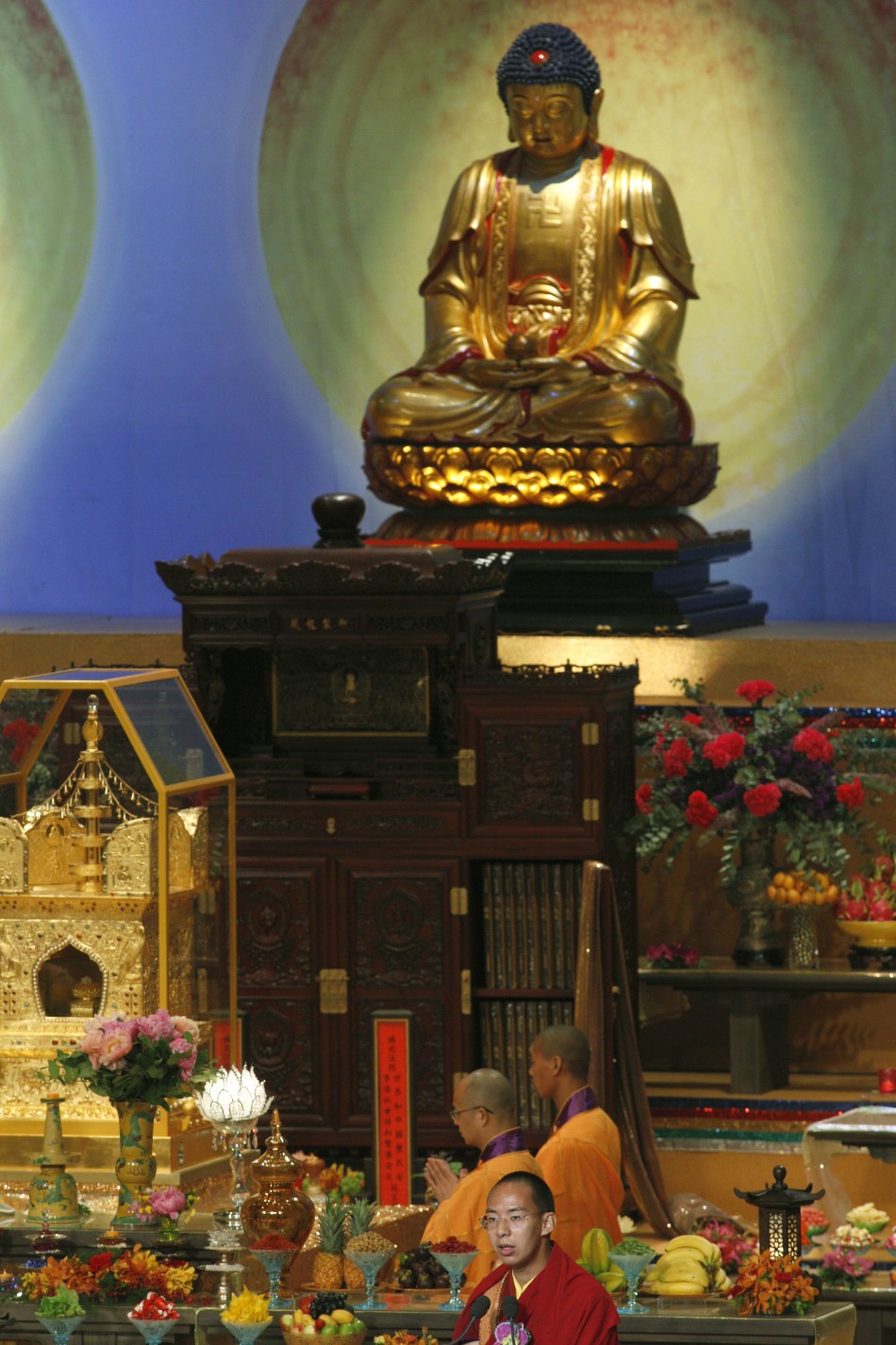Panchen Lama Gyaltsen Norbu Wows Hong Kong with Public Speech [SLIDESHOW]
The young Tibetan chosen by China as the Panchen Lama, Tibet's second highest spiritual leader, has made his first appearance outside the mainland on a trip to Hong Kong.
Gyaltsen Norbu, 22, spoke at the third World Buddhist Forum amid strict security measures to avoid disturbances aimed at humiliating him, after 30 Tibetans have set themselves alight over the past year in protest against Chinese rule.
He was named by Beijing as the reincarnation of the Panchen Lama when he was six, but is not recognised by followers of the Dali Lama, who lives in exile.
Wearing crimson and saffron robes, the Panchen Lama spoke about the Dharma, the teachings of Buddha, and criticised materialistic technology.
"Current society values external science and technology over the inner sciences," he said at the conference attended by more than 1,000 monks, nuns and scholars from 50 countries.
"The three vices contaminate the self. The sins spread and [spiritual] corruption becomes rampant. The body loses balance and the environment is tainted. Disasters spread, disease spreads, wars become more rampant."
He did not mention China or call for an end to the self-immolations that have been taking place in Tibet and Tibetan areas of China.
Norbu has been educated under the guidance of the atheist Communist Party since 1995, when he was appointed by Beijing as the reincarnation of the Penchen Lama. The Dalai Lama's own choice, a six-year-old boy named Gedhun Choekyi Nyima, was taken away by Chinese authorities and has disappeared from public view.
A former spokesman for the Tibetan government in exile said that followers of the Dalai Lama were extremely concerned about the real Panchen Lama.
"As far as the Chinese-appointed Panchen Lama is concerned, we feel that China is trying to find a platform for him to be accepted by the larger community, which will not happen," Thubten Samphel said.
Hong Kong chief executive Donald Tsang praised the city for its religious harmony. "Hong Kong is an international community," he said. "It has a variety of cultural features and encourages harmony between different religions and ensures freedom of religion."
Before the speech, Norbu and other Buddhist leaders bowed three times before a 2,500-year-old bone fragment, which is believed to be part of the skull belonging to the Siddhartha Gautama Buddha, who is regarded by Tibetans as the Supreme Buddha.




© Copyright IBTimes 2024. All rights reserved.









